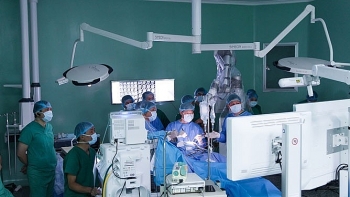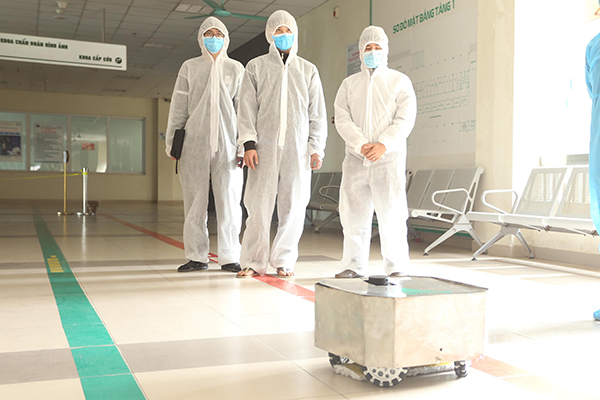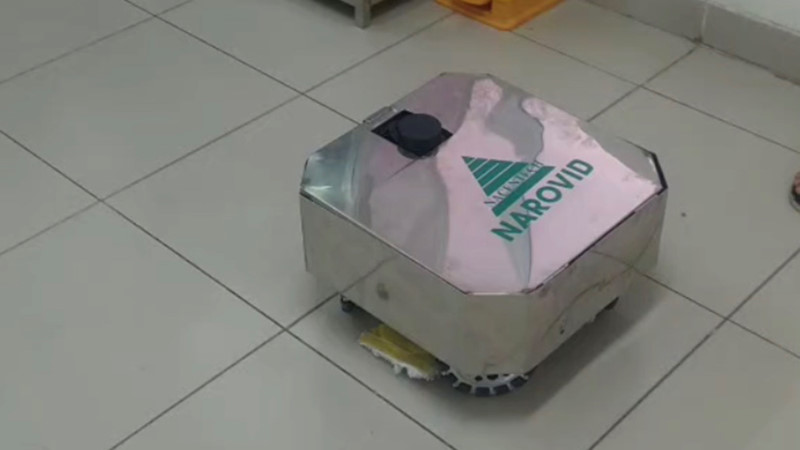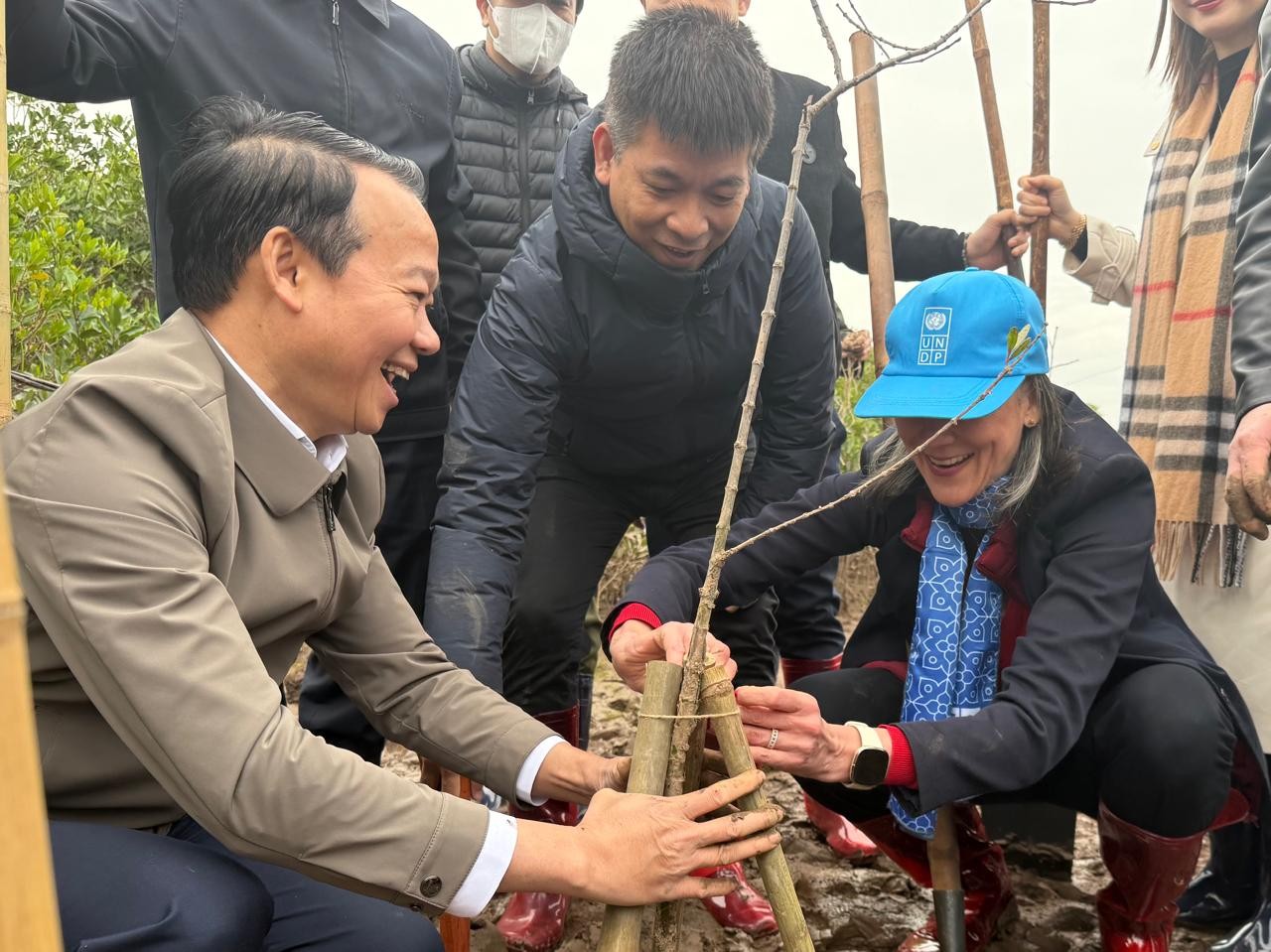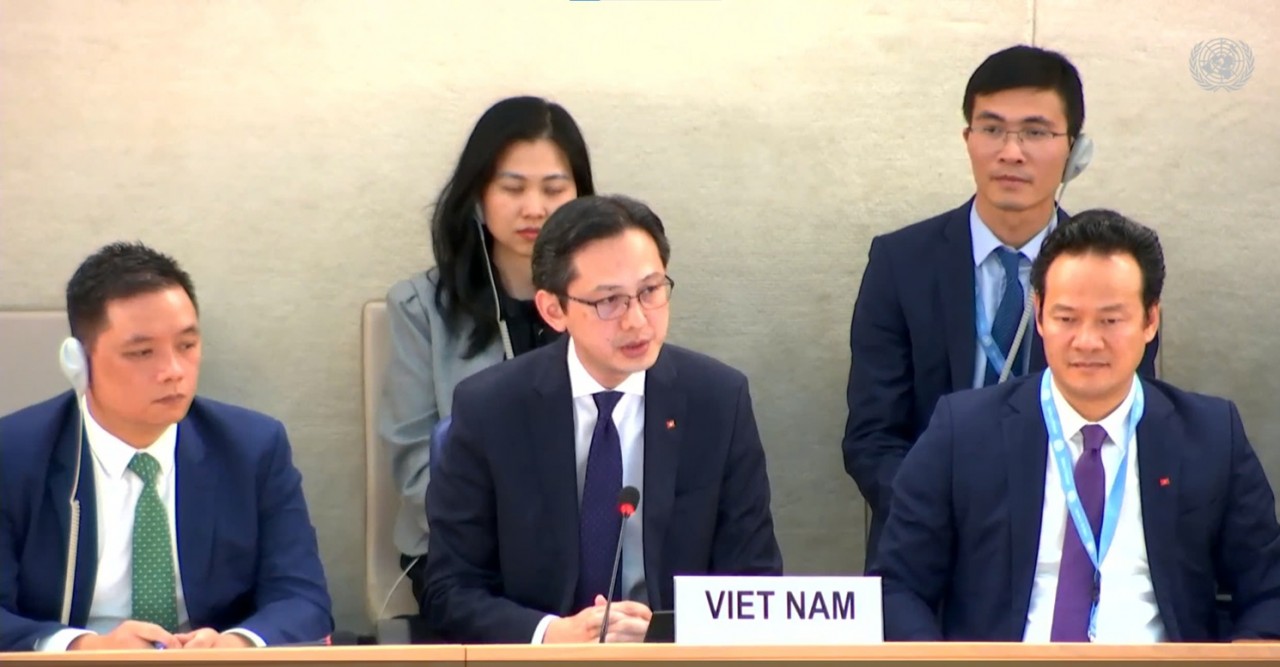UNDP donated robots to help protect frontline health workers
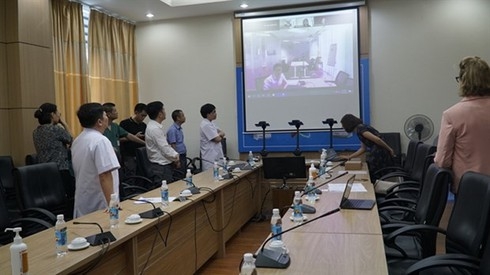 |
| Ohmni Robots are tested at the National Hospital of Tropical Diseases. (Photo: UNDP) |
Ohmni Robots have the main functions of remote communication, remote diagnoses and treatment, informed VOV.
Vietnam is one of the tropical countries susceptible to infectious diseases such as H1N1, H5N1, SARS, hepatitis A, B and dengue fever. The National Hospital of Tropical Diseases is a front-line hospital that receives patients with highly contagious diseases.
 |
| Ms. Caitlin Wiesen - UNDP Resident Representative in Viet Nam hopes that these robots will effectively assist doctors in the treatment of infectious diseases. (Photo: VOV) |
According to Dr. Nguyen Vu Trung, Deputy Director of the National Hospital of Tropical Diseases, the hospital has so far only used personal protective equipment (PPE) and tried to protect the health workers as best as possible. However, some doctors and nurses are still at high risk of infection because they come in direct contact with patients, especially when doing procedures to treat the disease, reported by Bao dau thau.
Handing over the robots to the hospital, UNDP Resident Representative in Vietnam Caitlin Wiesen said these robots provide safe interface between the doctor and the patient for diagnoses and they enable doctors to see more patients at a time.
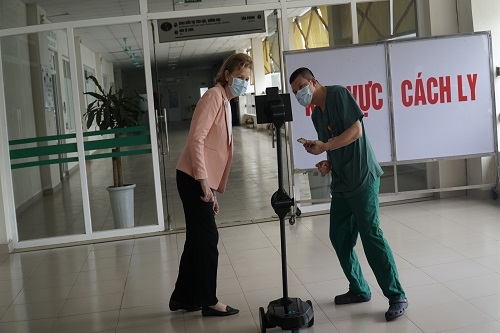 |
| Representative of UNDP and National Hospital of Tropical Diseases tested Ohmni robots. (Photo: UNDP) |
They are fully automatic, can be managed from a large distance and provide the added function of tele-medicine and tele-training. That will be very important for the interface between the central hospital and hospitals in rural areas.
She added that the intention was not to replace existing doctors and nurses. It was to complement and provide safety in highly infectious contexts.
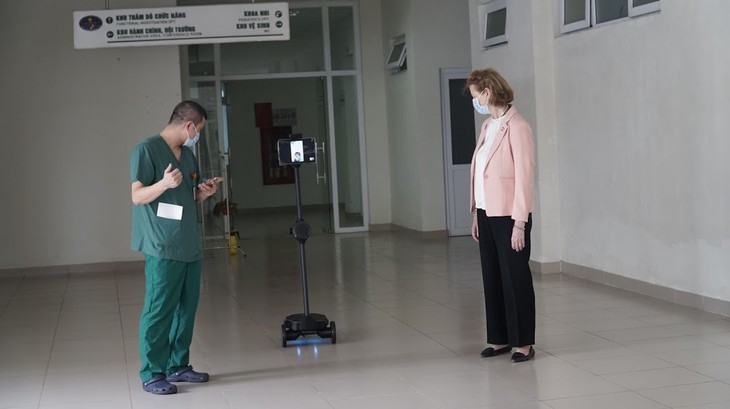 |
| Ohmni robot testing at the National Hospital of Tropical Diseases (Photo: Bao dau thau) |
Dr. Tran Van Bac, Deputy Head of the Hospital's Emergency Department, said: "The quality of the audio images, the ability to control robots to move near and far and change the position of observation can partly help us diagnose the disease and detect symptoms from a distance."
Meanwhile, Nguyen Vu Trung, Deputy General Director of the hospital, said: “These robots will help us a lot, the non-contact procedures will protect us."
| These are the first robots in a series of robots awarded by UNDP to hospitals for ecosystems and robot applications testing, including diagnostics, distance learning, and distribution of necessary medicines and equipments for treatment of COVID-19 and other infectious diseases. The next donation in July will be the BeetleBot robot. After experimenting with these two robots, UNDP will hold dialogues between hospitals, health care system stakeholders and robot manufacturers in order to build a healthy robot ecosystem in Vietnam, according to Financial Times. |
 | Norway, Vietnam and UNDP join hands to tackle waste and plastic pollution On the occasion of World Oceans Day, the Norwegian Ministry of Foreign Affairs, the Norwegian Agency for Development Cooperation (Norad), the United Nations Development Programme ... |
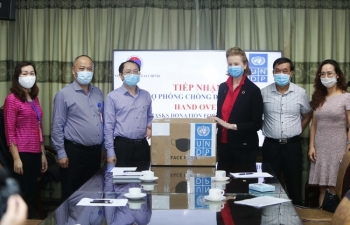 | UNDP donates 20,000 medical masks to help Vietnam fight against COVID-19 This is part of UNDP’s assistance to the Government of Vietnam to help the country fight against the COVID-19 pandemic. |
 | UNDP supports USD185,000 to help the Mekong Delta cope with drought and saline intrusion On March 17 in Hanoi, the United Nations Development Program (UNDP) signed an agreement to support USD185,000 to the Mekong Delta to overcome drought and ... |
Recommended
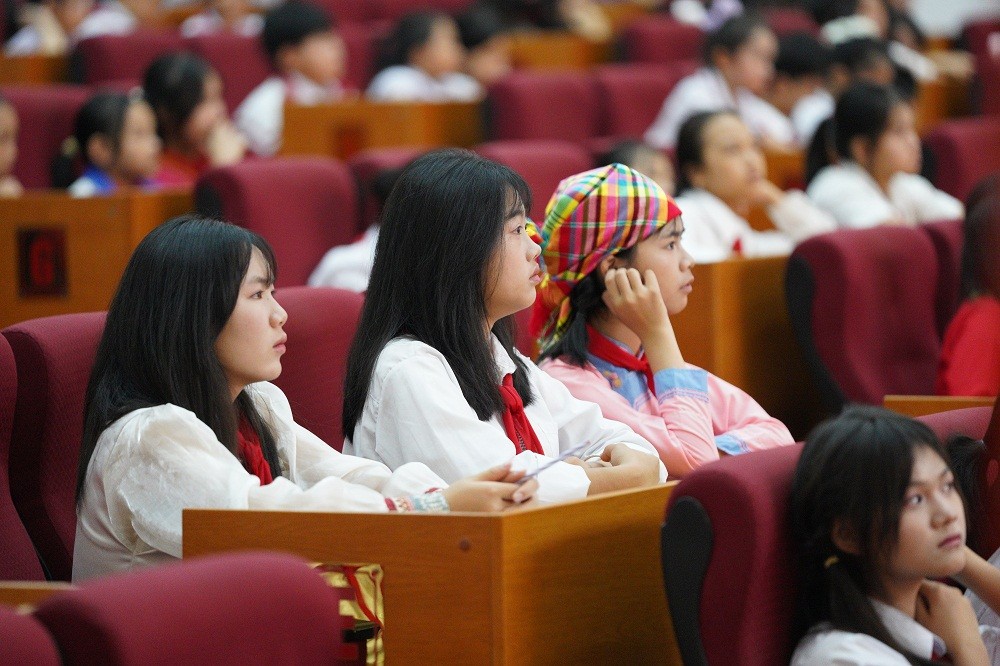 Viet's Home
Viet's Home
Lai Chau National Assembly, People's Council Delegates Hold Dialogue with Children
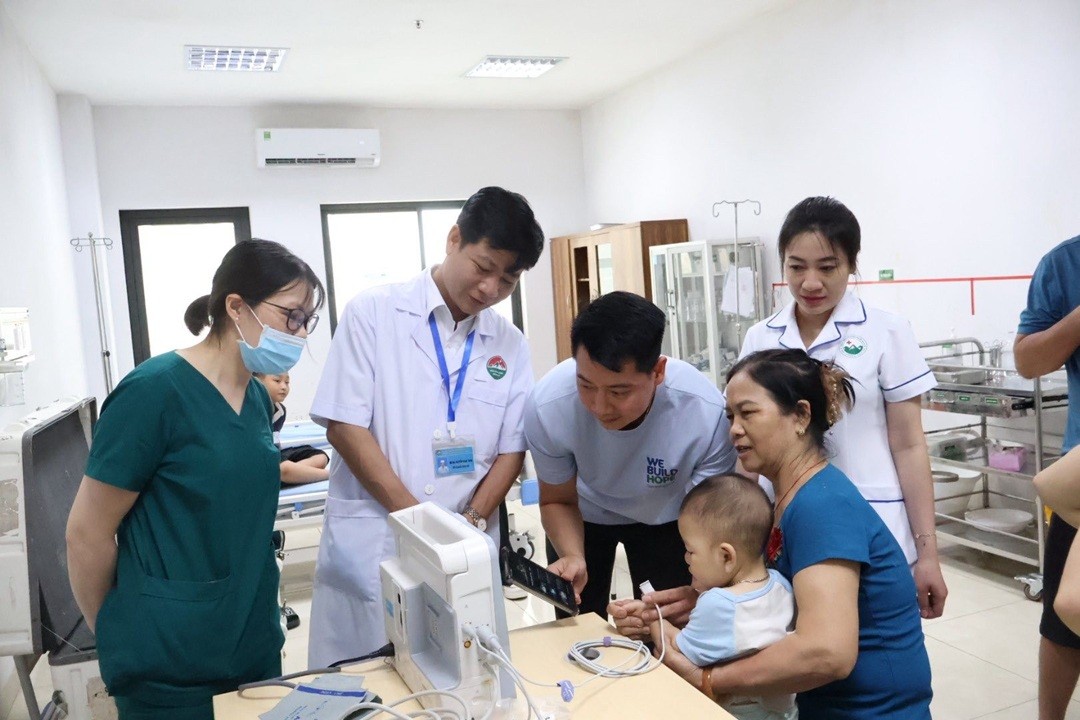 Viet's Home
Viet's Home
24 Children with Disabilities in Northern Provinces Received Free Surgery
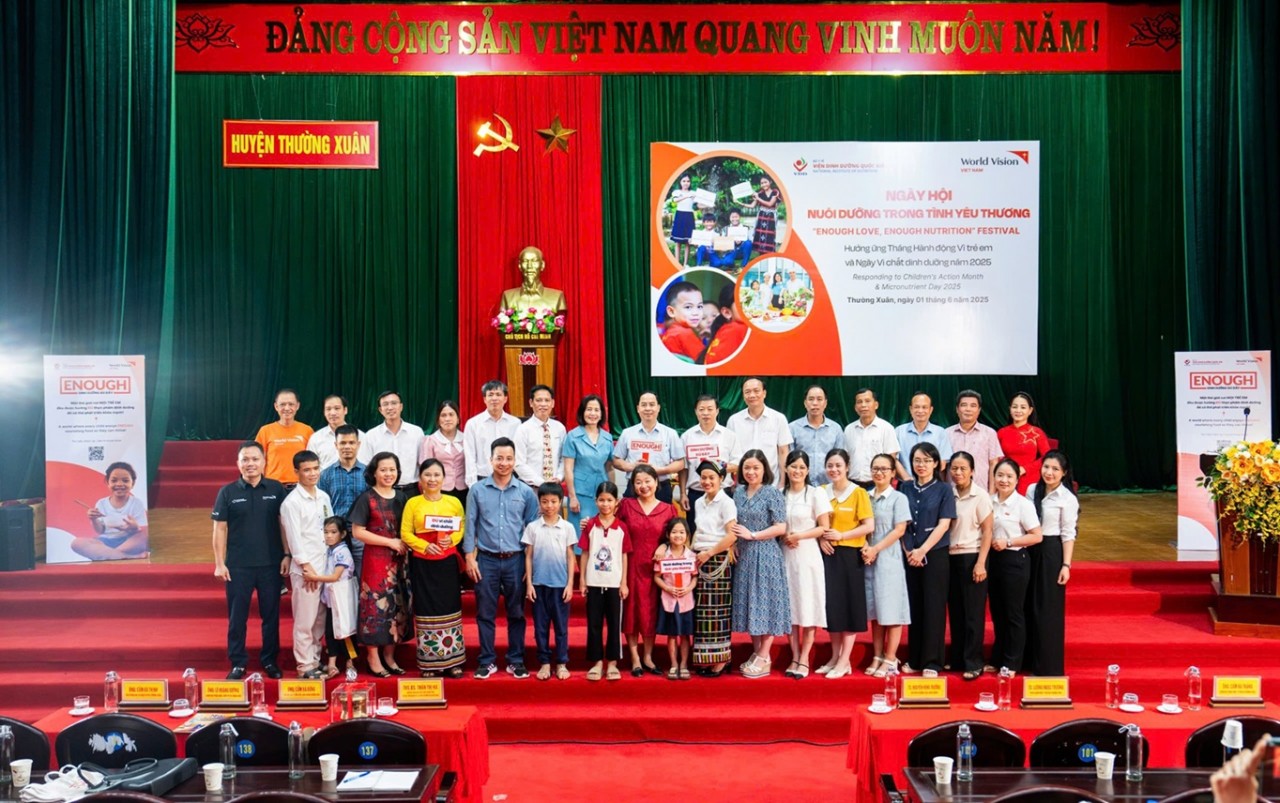 Viet's Home
Viet's Home
World Vision Promotes Comprehensive Nutritional Care for Vietnamese Children
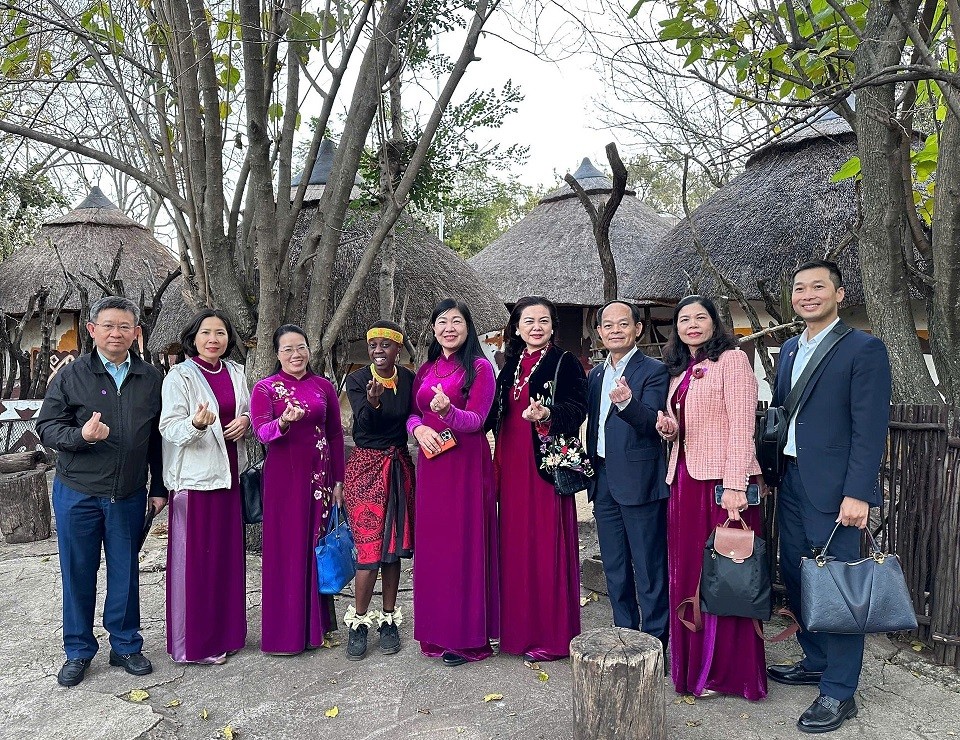 Viet's Home
Viet's Home
Hanoi, South Africa Strengthens People-to-people Exchanges, Expands Multi-sector Cooperation
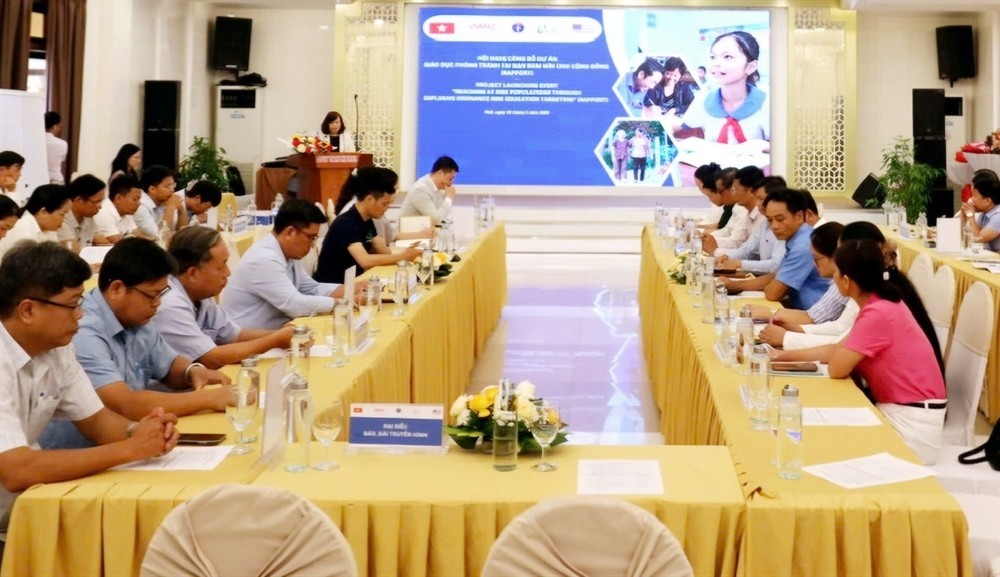 Viet's Home
Viet's Home
Hue City to Raise Awareness on Mine Accident Prevention
 Focus
Focus
Vietnam Leaves Imprints on the World Peacekeeping Map
 Viet's Home
Viet's Home
“Global Vietnamese Singing 2025” - Connecting Hearts Longing for Homeland
 Viet's Home
Viet's Home

